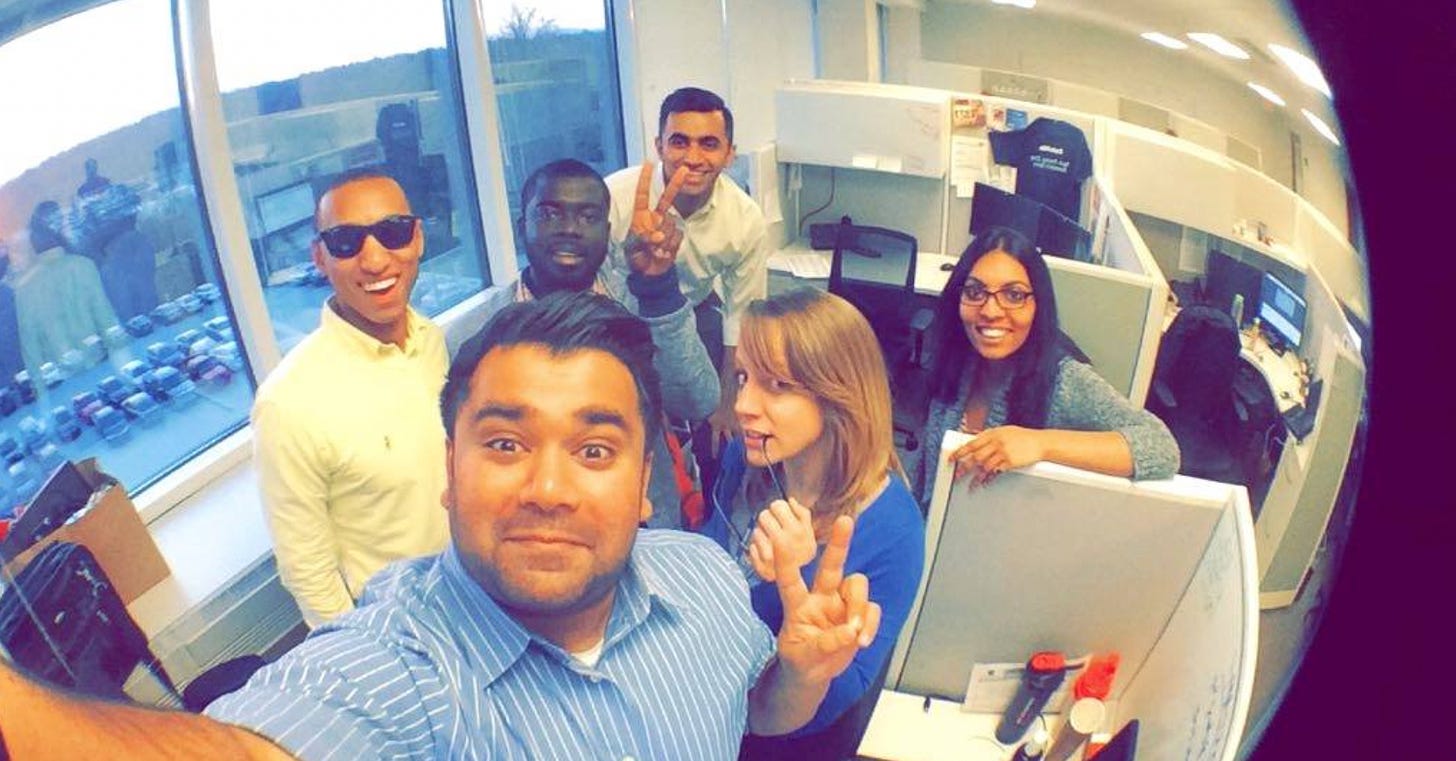#32 - Deep Respect / Care is a Shortcut to Being a Badass at Work
Sharing my first principle that has underpinned every single evolution in my career.
What’s in this letter: Background at the beginning, a very short personal story in the middle, and specific tactics as bullet-points at the end.
Earlier this morning, I totally fell for Fortune mag’s/Macworld’s clickbait around the one word that Steve Jobs anchored to in the context of designing amazing products. The word was: Care.
My immediate response was, “Ugh, why couldn’t you have just said that in the subject line?” But my follow-up thought was, maybe there’s something more here.
Immediately my brain shifted to thinking about all of the people I’ve worked with who are just…next level. They’re the ones who command respect, who drive results, who lift others up and drive inclusive environments. And the one thing they all have in common is deep respect for others — their opinions, their needs, their strengths, their development areas, their agency + sense of belonging.
Before I get into my bullet-point list for today, here’s a picture of the team that taught me that respect and care for others should apply even and especially when you’re working 80-100 hours every week, under immense stress, sacrificing precious time you could be spending with your family to do something in the world.
(I put my shades on right before this picture for some reason. Sometimes, I’m a little too much. The guy at the front is now also at Microsoft with me, and I’ll never forget him spending hours with me teaching me about technology architecture, showing respect for where I was in my journey. Every person on this team helped each other, created an inclusive environment, and ultimately we launched a really awesome platform to help curb child abuse).
Respect looks like:
Ensuring everyone’s voice at a meeting is heard
Not interrupting when people are speaking
Being cognizant of why you’re meeting in the first place, and not derailing with your own side-thoughts
Listening, and not just waiting to respond with the point in your brain
Anticipating what different people may want out of a meeting
If you’re an intern, this means anticipating the questions or needs of your boss
If you’re a junior employee, it means carefully noting what your manager is saying whenever they speak, and making sure to incorporate it into your communications + work
If you’re a senior executive, it means anticipating that others might be intimidated by you, and going out of your way to make sure they feel included enough to speak up (and if you aren’t doing this, then why the shit are you paying for them to work at your company?)
Actively thinking about the emotional states of others while driving towards business results
Noting how you and others can improve. As I probably say too much, even LeBron James has a coach — and then actually thoughtfully telling them
This can be everything from, “I really loved how you did X, and I’d love to see you do it even more!”
This can also be, “Candidly, x comment you made came across as a bit harsh. I know you didn’t mean it, but here’s why it came across that way. You might want to reach out to person A to just check in on how it landed + how the message could have been communicated differently”
Following up after a meeting with additional questions
Messaging someone before a meeting to see if there’s anything you can do to help them run a successful process
Thinking through every stakeholder in a project or meeting and making sure you understand how to both engage and support them
That’s it, really. I really don’t need to write anything else as of now, because if you just do these things above, everything else you do at work will go more smoothly. You’ll have a higher-performing team. You’ll feel good for empowering others. You’ll actually be more engaged at work.
Jk, there’s one more thing (ehhh, Steve Jobs tactic strikes again!): applying these tactics above is good, but living from the first principle of Respect and Care for others is how you’ll apply them well and lead change in your own environments.
MD
(P.S. we aren’t perfect. Sometimes we break our own principles. This will happen, and when it does you need to accept that you fucked up and learn from it. Don’t blame others; accept responsibility ==> grow ==> thrive).



